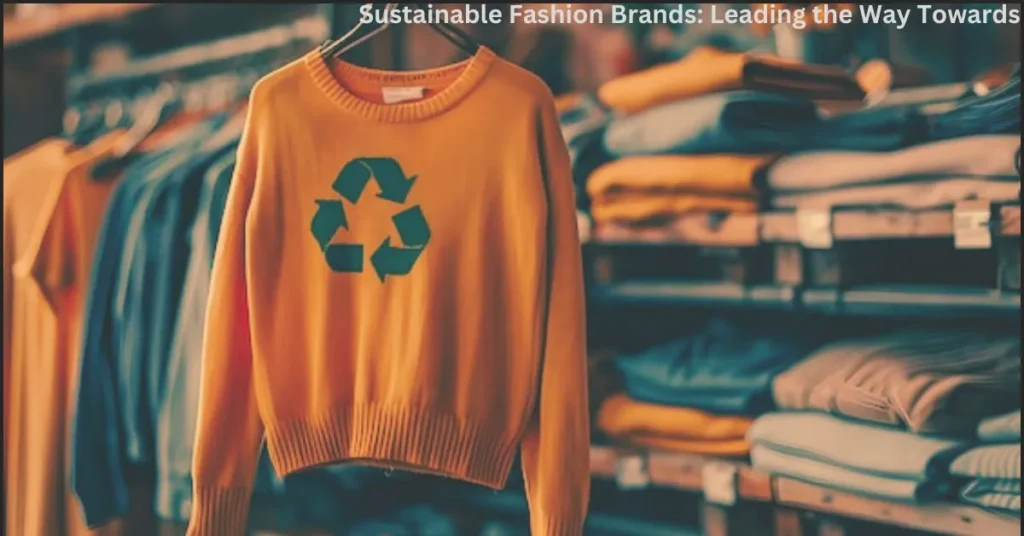In an era where environmental consciousness is at the forefront of global concerns, the fashion industry stands as a significant player in the movement towards sustainability. As consumers become increasingly aware of the impact of their choices, the demand for sustainable fashion brands has surged. These brands not only prioritize eco-friendly practices but also champion ethical production methods, setting new standards for the entire industry.
Understanding Sustainable Fashion
Sustainable fashion encompasses various principles aimed at reducing the environmental footprint of clothing production and consumption. Key aspects include:
- Materials: Opting for organic, recycled, or upcycled materials to minimize resource depletion and pollution.
- Production: Emphasizing fair labor practices, safe working conditions, and transparency throughout the supply chain.
- Longevity: Designing durable and timeless pieces to promote longevity and reduce waste.
Leading Sustainable Fashion Brands
1. Patagonia
- Commitment: Known for its outdoor gear, Patagonia integrates sustainability into its business model with initiatives like the “Worn Wear” program, promoting reuse and repair of garments.
- Impact: Advocates for environmental activism and fair labor practices across its supply chain.
2. Stella McCartney
- Ethical Values: Pioneers cruelty-free and vegan fashion, using sustainable materials like organic cotton and recycled polyester.
- Innovation: Champions circular fashion with initiatives like “Loop Sneakers,” designed for disassembly and recycling.
3. Eileen Fisher
- Simplicity: Focuses on minimalist designs and timeless styles, promoting a “take-back” program for recycling old garments into new collections.
- Transparency: Commits to transparency by publishing its sustainability reports and partnering with NGOs to improve supply chain practices.
4. Reformation
- Chic Sustainability: Known for trendy designs, Reformation emphasizes eco-friendly fabrics and sustainable practices like carbon-neutral shipping.
- Consumer Education: Educates consumers on sustainability through its website and promotes garment care to extend product lifespan.
5. Veja
- Fair Trade: Produces sneakers using eco-friendly materials like organic cotton and wild rubber sourced from the Amazon rainforest.
- Transparency: Publishes detailed information about its supply chain, promoting fair wages and sustainable practices.
Conclusion
The rise of sustainable fashion brands marks a significant shift towards a more conscientious and eco-friendly approach to clothing production. By supporting these brands, consumers not only contribute to environmental preservation but also advocate for ethical practices within the fashion industry. As awareness grows and technologies advance, the future of fashion holds promise for a world where style and sustainability go hand in hand.
In conclusion, sustainable fashion brands are not just a trend but a vital step towards a more sustainable future for the planet and its inhabitants.
Frequently Asked Questions (FAQs)
Q1: What are the benefits of buying from sustainable fashion brands?
Buying from sustainable fashion brands supports ethical practices such as fair wages and safe working conditions. It also reduces environmental impact by using eco-friendly materials and minimizing waste.
Q2: How can consumers identify genuinely sustainable fashion brands?
Look for certifications like GOTS (Global Organic Textile Standard) or Fair Trade, which verify sustainable and ethical practices. Additionally, check brand websites for transparency reports detailing their environmental and social commitments.
Q3: Is sustainable fashion more expensive?
Initially, sustainable fashion may have a higher price point due to ethical sourcing and quality materials. However, the long-term benefits, including durability and reduced environmental impact, often outweigh the cost.
Q4: What can consumers do to support sustainable fashion?
Consumers can support sustainable fashion by choosing quality over quantity, opting for timeless pieces, and educating themselves about brands’ sustainability practices. They can also advocate for policy changes and encourage transparency within the fashion industry.
Q5: How can sustainable fashion contribute to a circular economy?
Sustainable fashion promotes a circular economy by designing products for longevity, encouraging recycling and upcycling, and minimizing waste throughout the production and consumption cycle.







